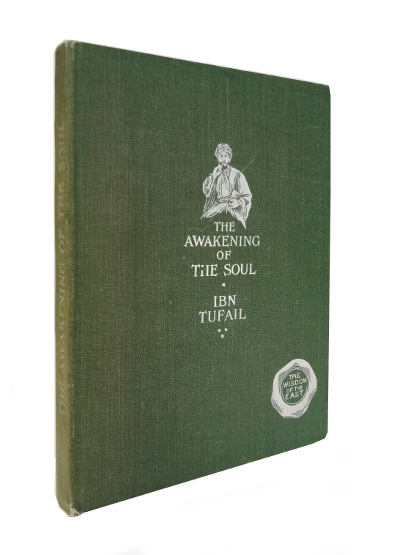About the book:
Ḥayy ibn Yaqẓān, the first Arabic novel, was written by Ibn Tufail, a Moorish philosopher and physician, in early 12th century Islamic Spain. The novel was itself named after an earlier Arabic allegorical tale and philosophical romance of the same name, written by Avicenna in the early 11th century, though they had different stories.
Ibn Tufail’s Hayy ibn Yaqdhan had a significant influence on Arabic literature, Persian literature, and European literature after it was translated in 1671 into Latin and then into several other European languages. The work also had a “profound influence” on both classical Islamic philosophy and modern Western philosophy, and became “one of the most important books that heralded the Scientific Revolution” and European Enlightenment. The novel is also considered a precursor to the European bildungsroman genre.
Also known as Philosophus Autodidactus in the West, the book is a philosophical romance and allegorical novel inspired by Avicennism and Sufism, and which tells the story of an autodidactic feral child, raised by a gazelle and living alone on a desert island, who, without contact with other human beings, discovers ultimate truth through a systematic process of reasoned inquiry. Hayy ultimately comes into contact with civilization and religion when he meets a castaway named Absal. He determines that certain trappings of religion, namely imagery and dependence on material goods, are necessary for the multitude in order that they might have decent lives. However, imagery and material goods are distractions from the truth and ought to be abandoned by those whose reason recognizes that they are distractions.
Ibn Tufail (c. 1105 – 1185) was an Andalusian Muslim polymath: a writer, novelist, Islamic philosopher, Islamic theologian, physician, vizier, and court official.
As a philosopher and novelist, he is most famous for writing the first philosophical novel, Hayy ibn Yaqdhan, also known as Philosophus Autodidactus in the Western world. As a physician, he was an early supporter of dissection and autopsy, which was expressed in his novel.
He served as a secretary for the ruler of Granada, and later as vizier and physician for Abu Yaqub Yusuf, the Almohad king, to whom he recommended Ibn Rushd (Averroës) as his own future successor in 1169. Ibn Rushd later describes how Ibn Tufayl then inspired him to write his famous Aristotelian commentaries.



